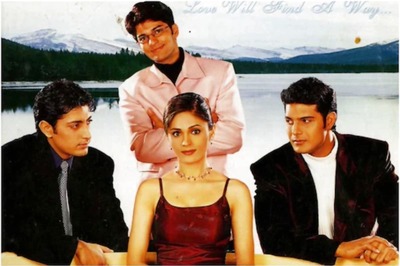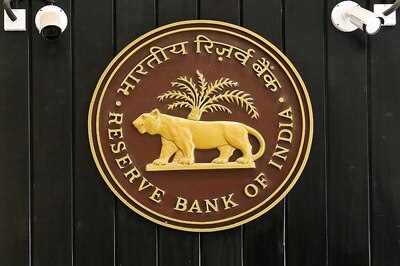
views
BAMAKO, Mali: Malis transitional president and vice president were sworn into office Friday, more than a month after a coup in the West African nation.
The induction ceremony in the capital, Bamako, took place as Mali remains under sanctions by the 15-nation West African regional bloc, ECOWAS, and amid uncertainty about details of the transition period.
Former Defense Minister and retired Col. Maj. Bah NDaw is the new transitional president while Col. Assimi Goita, head of the junta that staged the Aug. 18 coup, is Malis new vice president. The two, along with a prime minister who will be chosen in the coming days, are to lead the transitional government to elections in 18 months.
Former Nigerian president Goodluck Jonathan attended the ceremony as representative of ECOWAS, which had pressed for a quick return to a civilian government. The regional group held days of talks with the junta and other political and civil groups in Mali to encourage a return to democacy. ECOWAS has closed borders to Mali and stopped financial flows and has said it will only lift those sanctions once it approves of the transitional plan.
Jonathan has been positive about the junta’s proposals.
We are happy with what is happening in the Mali. The young soldiers who took power are working in the direction of the recommendations of the heads of state of ECOWAS, he said upon arrival in Bamako Wednesday. He has not made any further statement.
ECOWAS ambassador to Mali, Hamidou Bolly, said a civilian prime minister and the lifting of sanctions are likely. However, there are many other points that West African leaders have demanded for the transition government, including a safeguard that the vice president cannot replace the transitional president in the case of incapacity or resignation. ECOWAS has also demanded the dissolution of the junta, which calls itself the National Committee for the Salvation of the People.
Baba Dakono, a researcher at the Citizens Observatory on Governance and Security, said that at this point it seems that the junta wants to do things well and move quickly after the ceremony.
More importantly, he said the expectations of Malian citizens remain the same: improved governance, an end to impunity and insecurity. The previous government, elected after an earlier coup in 2012, did not fulfil its vows to be accountable, he said.
The 2012 transition did not live up to those expectations and thats likely why we ended up in this new transition, he told The Associated Press.
The M5-RFP opposition coalition, which staged the massive demonstrations that paved the way for the juntas coup, has been cautious about backing the junta and has made strong calls for a civilian transition for the good of the people. They refused to back the transitional charter earlier this month and didnt take part in discussions to name the transitional president.
Mountaga Tall of the M5-RFP said that they are still in talks with the junta over some points, including who will be the prime minister and the formation of a transitional council that will be the legislative body during the transition.
The opposition coalition has suggested it could return to protests if they are unhappy with the transition.
The West African regional body has been relatively lenient toward the junta, Andrew Lebovich, Policy Fellow, European Council on Foreign Relations, told AP.
ECOWAS has so far appeared a step or two behind the situation at each level of mediation, even going back before the coup, said Lebovich. The fact that theyve accepted this outcome without other provisions in place and without even waiting for the designation of a transitional prime minister shows a strong desire to move forward with the transition, even knowing that the (junta) will maintain a high degree of control over the process.
ECOWAS could threaten to renew sanctions, but this path is unlikely if the transition appears to meet the majority of their conditions, he said.
The fate is unclear of 13 government officials who were detained at the time of the coup. U.N. leaders have called for the release of the officials who were detained on the night of the coup. Former President Ibrahim Boubacar Keita has since been released and flown to the United Arab Emirates for medical treatment, one of the demands of ECOWAS.
There has been widespread concern that the upheaval in Mali will set back efforts to contain the countrys growing Islamic insurgency. After the earlier coup in 2012, Islamic extremists grabbed control of major towns in northern Mali. Only a 2013 military intervention led by the former colonial power France pushed extremists out of those towns. France and a U.N. force have continued to battle the extremist rebels, who operate in rural areas and regularly attack roads and cities.
The coup has not resulted in the kind of security vacuum that occurred after the 2012 coup, said Lebovich, although nearly two dozen security force members have been killed in recent extremist attacks.
The junta has repeatedly stated they want to continue to work with the international security partners.
___
Petesch reported from Dakar, Senegal
Disclaimer: This post has been auto-published from an agency feed without any modifications to the text and has not been reviewed by an editor




















Comments
0 comment